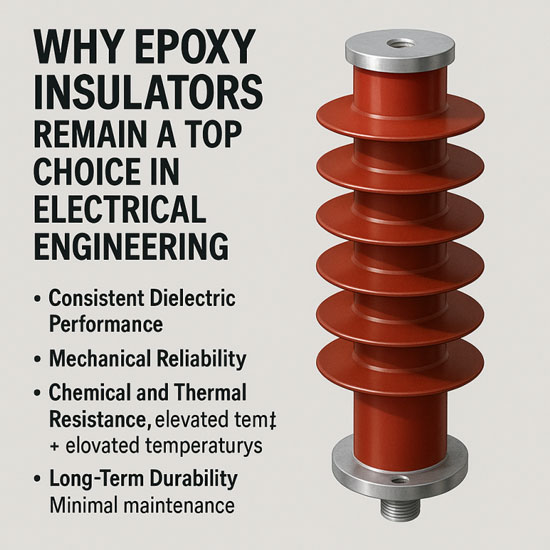Epoxy insulators have become a staple in modern electrical insulation systems, thanks to their unique combination of mechanical strength, dielectric stability, and resistance to environmental stress. In this article, we explore the key reasons why epoxy insulators are consistently chosen by manufacturers, engineers, and procurement specialists alike.

One of the main reasons epoxy is used as an insulator is its excellent dielectric strength. Epoxy insulators can withstand high voltages without breaking down, making them highly effective for medium- and high-voltage systems. This property ensures minimal energy loss and helps prevent partial discharge or arcing, which could lead to equipment failure.
Epoxy resin structures offer outstanding mechanical strength, including high tensile and compressive resistance. This allows the insulators to remain stable even under mechanical stress such as vibration, pressure, or thermal expansion. The stability of epoxy insulators over time helps extend the lifespan of the entire electrical system.
Epoxy insulators are also valued for their chemical resistance to moisture, oils, and solvents, and their thermal endurance at elevated temperatures. Unlike some other materials, epoxy retains its insulating properties even when exposed to heat or corrosive environments. This feature is crucial in maintaining consistent performance in challenging industrial conditions.
Epoxy resins are highly moldable, allowing manufacturers to achieve complex shapes and precise dimensions. This level of customization ensures compatibility with a wide range of equipment, including switchgear, transformers, and sensors. Furthermore, epoxy insulators can be designed to meet specific technical and safety standards.
Another key benefit is their longevity. Epoxy insulators are designed to perform reliably over decades with minimal maintenance. Their surface is typically resistant to contamination and tracking, which helps preserve insulation integrity over the product’s entire service life.